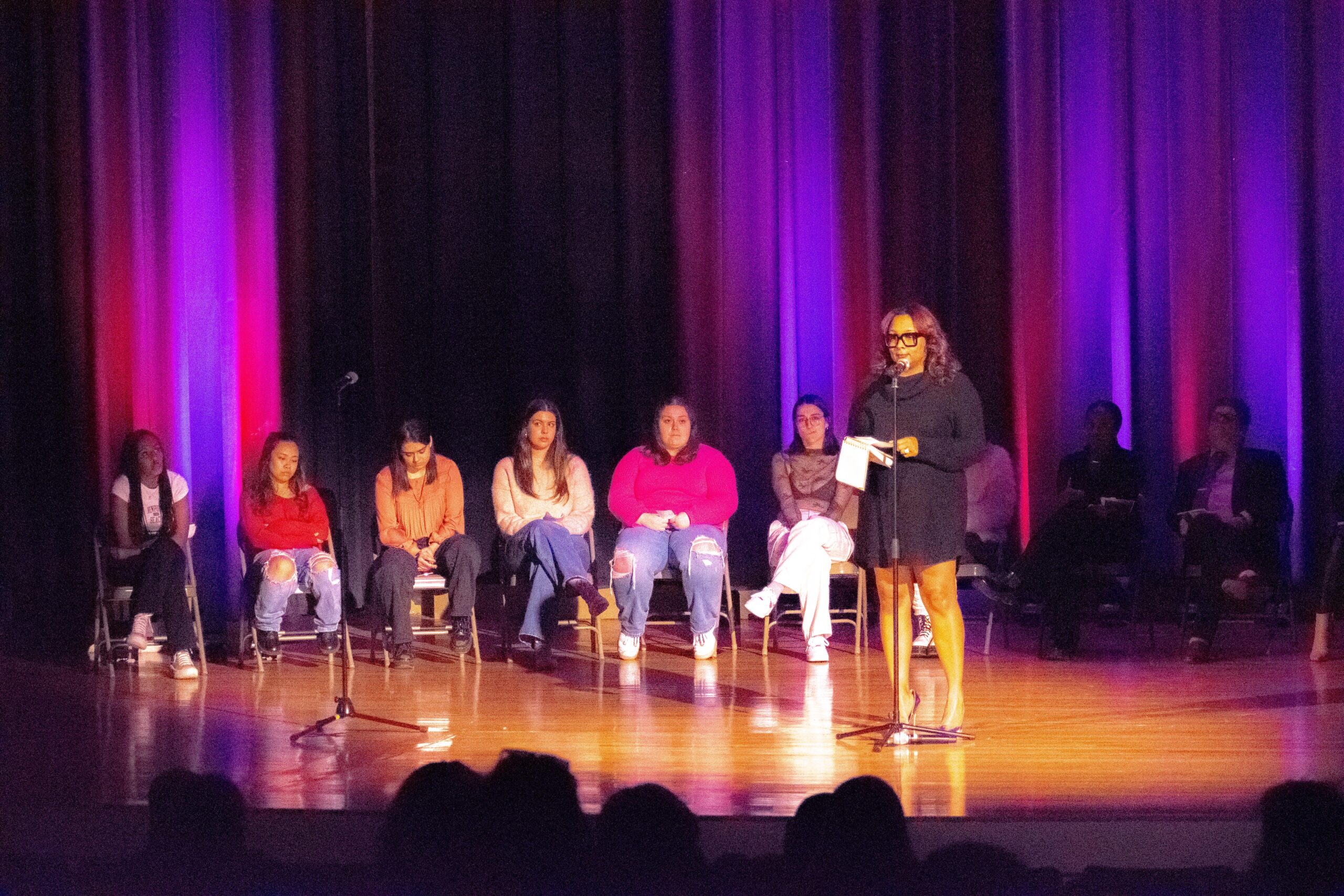On Friday and Saturday, the University of Rhode Island’s Gender and Sexuality Center presented a production of “The Vagina Monologues” in Edwards Auditorium.
The 90-minute production was performed entirely by URI students, faculty and staff, with numerous members of the URI community in attendance for the showings.
Of the 13 monologues depicted, topics included the role of hair in pleasurable experiences, a retelling of a romantic moment disrupted by a vaginal flood, the discovery of the magnificence of a woman’s reproductive system, and the metaphorical significance of a man’s braided hair in a tale of domestic and sexual abuse.
This performance by the GSC is not a unique circumstance – according to the center’s archives, the production has been happening for over 10 years, with the earliest example taking place in 2013.
This also takes place during a spring semester that is packed with events for the GSC, culminating with “Sex Fest,” an all day event that takes place on the quadrangle. Last year’s event featured sex toy races and tables representing important resources on campus such as Health Services and the Counseling Center.
First performed in 1996, the play has been described as a “compelling rhapsody of the female essence,” according to the Chicago Tribune. The first draft of “The Vagina Monologues” was written by playwright and author Eve Ensler, and was comprised of over 200 interviews she did with women. They talked about sex, relationships, their views on their bodies and violence against women.
“[Ensler] traveled around the world and she did interviews with women, about their experiences and especially about their vaginas – because mainly no one had ever asked them before,” GSC Director Annie Russell said. “She ultimately ended up writing these monologues that are meant to represent women’s experiences from around the world.”
While originally written in the United States, the play has since been translated into 48 languages and performed in over 140 countries, creating something that The New York Times called “one of the most important plays of the past 25 years.”
“This groundbreaking piece gives voice to a chorus of lusty, outrageous, poignant and thoroughly human stories, transforming the question mark hovering over the anatomy into a permanent victory sign,” according to the show’s program. “With laughter and compassion, [Ensler] transports their audiences to a world we’ve never dared to know, guaranteeing that no one who reads ‘The Vagina Monologues’ will ever look at a woman’s body the same way again.”
Despite the end result, Ensler did not originally set out to write what would eventually become “The Vagina Monologues.” Fascinated by the answers she heard from her friends, she decided to dig deeper and learn more about their personal experiences with vaginas, which eventually turned into the spoken-word play that bears their name.
Proceeds from the performances went to several philanthropies, including Nora’s Haven, an advocacy group focused on reproductive health, equity, diversity and inclusion.
Other benefactors included the Alpha Chi Omega sorority’s philanthropy, which highlights domestic violence awareness and prevention, as well as Haven Box, an organization who provides “comfort boxes” to survivors of sexual violence.





